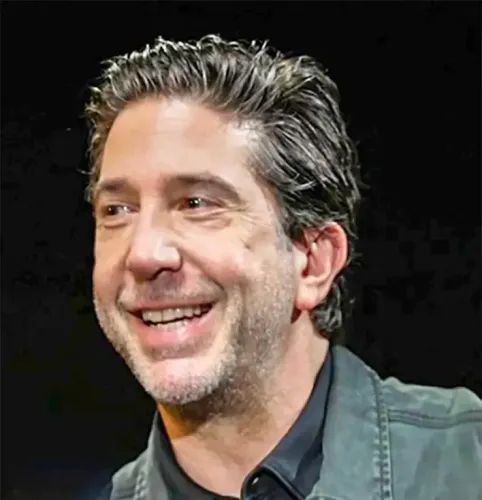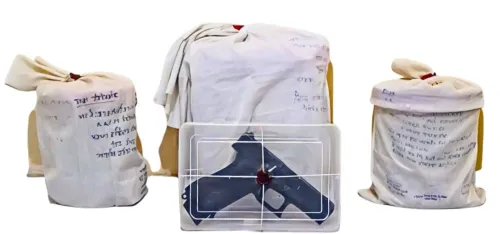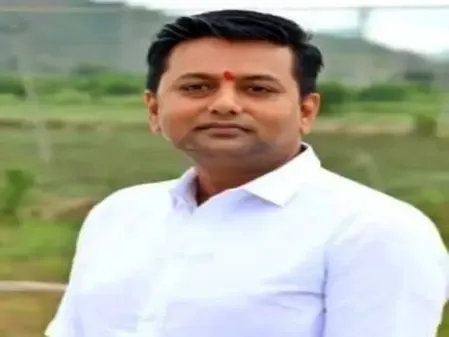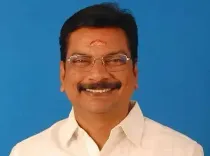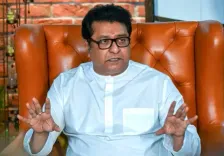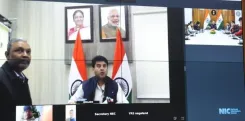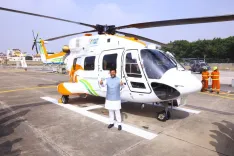'Vande Mataram': A Divine Invocation That Awoke a Nation?
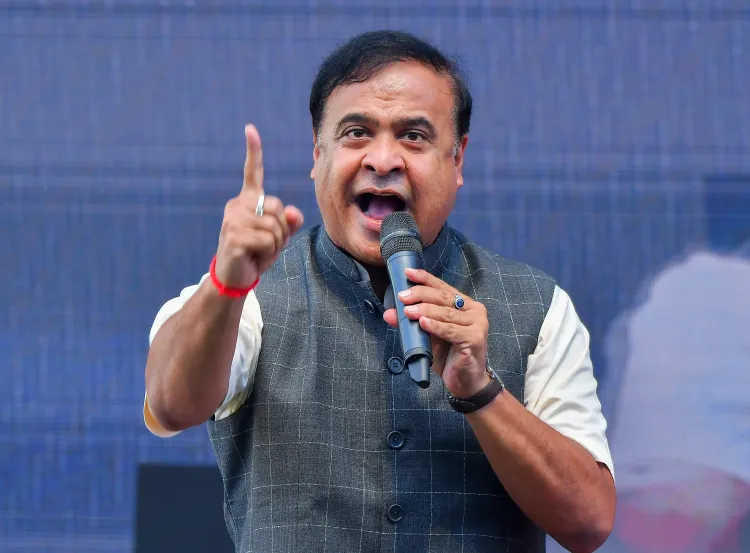
Synopsis
Key Takeaways
- Vande Mataram is a divine invocation, not just a song.
- It was composed by Bankim Chandra in 1875.
- The song played a crucial role in the Swadeshi movement.
- Commemorations include a year-long celebration until November 7, 2026.
- It inspires modern India towards Aatmanirbhar Bharat.
Guwahati, Nov 7 (NationPress) Assam Chief Minister Himanta Biswa Sarma highlighted that 'Vande Mataram' transcends mere melody; it serves as a divine invocation that once stirred a sleeping nation and continues to uplift every Indian even after 150 years since its inception.
During a ceremony at Janata Bhawan commemorating the 150th anniversary of the national anthem, the Chief Minister participated in a collective rendition of 'Vande Mataram' in its authentic form.
“With deep respect, we unite to pay tribute to this sacred song that once roused a dormant nation, instilling courage and igniting the unwavering dream of freedom in the hearts of all,” remarked Sarma.
He traced the history of the song, stating that Vande Mataram was crafted by Bankim Chandra on November 7, 1875, coinciding with the auspicious occasion of Akshaya Navami. He characterized it as more than just poetry — “a call to the divine spirit of the Motherland,” which has emboldened generations to rebel against colonial oppression.
Recalling that Rabindranath Tagore first performed 'Vande Mataram' at the 1896 session of the Indian National Congress in Calcutta, he noted that by the time of the 1905 Partition of Bengal, it had transformed into the anthem of the Swadeshi movement.
“It motivated countless individuals to reject foreign products, rejuvenate local industries, and restore India's honor,” he stated.
Sarma also highlighted that the British had prohibited the song from being sung in schools and public venues, yet its essence remained unquenchable.
He paid tribute to freedom fighters like Bal Gangadhar Tilak, Lala Lajpat Rai, Bipin Chandra Pal, Bhagat Singh, and Netaji Subhas Chandra Bose, who kept the flame of 'Vande Mataram' alive until Independence.
The Chief Minister encouraged everyone to sing the full version of the song, emphasizing that each line — from 'Sujalam Suphalam' to 'Malayaja Sheetalam' — celebrates India's sacred beauty.
“It reminds us that Bharat is not merely a nation but a living mother, nurturing her children with love, tolerance, and strength,” he affirmed.
Sarma announced that under the leadership of Prime Minister Narendra Modi, the Union Cabinet has initiated a nationwide celebration, Vande Mataram@150, which will last until November 7, 2026.
During this period, events such as mass recitations, musical performances, and educational programs will take place across the nation.
Connecting the essence of 'Vande Mataram' to the contemporary era, the Chief Minister stated that India must now harness that same bravery and resolve to attain economic independence through 'Aatmanirbhar Bharat' and 'Aatmanirbhar Assam'.
“Our ancestors, with 'Vande Mataram' on their lips, liberated the motherland from bondage. We must now fortify our economy and rejuvenate the Swadeshi ethos,” he asserted.
He added that Assam has made notable advancements in crucial sectors like hydrocarbon, semiconductor, and energy under the Prime Minister's vision of a self-sufficient India. “We should aspire to be ‘Local for Global’, where Indian-made products hold esteemed positions in international markets,” he urged.
Sarma recalled that Vande Mataram once faced bans from All India Radio, but artists like Master Krishnarao fought for its reinstatement in 1947.
“Even today, despite sporadic opposition, Vande Mataram stands as an everlasting symbol of unity and harmony,” he said, calling upon the people of Assam to sing the anthem together and recommit to the principles of unity, freedom, and Swadeshi.
The event was attended by ministers Ranjeet Kumar Dass, Jayanta Malla Baruah, Charan Boro, Chief Secretary Ravi Kota, senior officials, and a large assembly of government employees.


